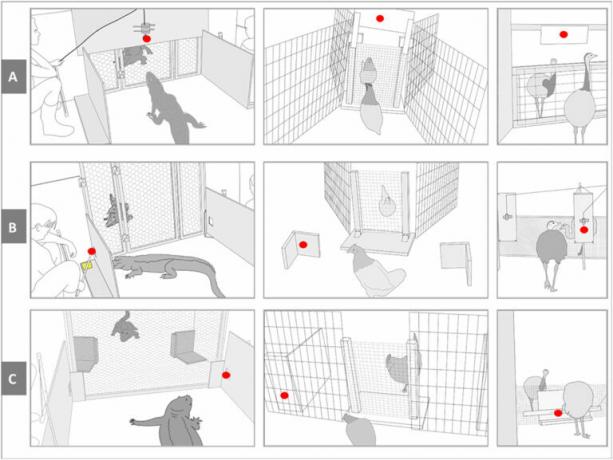One study recent study conducted by zoologists at the University of Lund, Sweden, presents a new perspective on the development of advanced cognitive abilities in dinosaurs.
Contradicting the traditional idea that mammals were the first to acquire such skills, the researchers' observations suggest that the ability to take visual perspective may have appeared in dinosaurs, about 60 million years earlier than previously thought previously.
see more
Mother registers daughter named Barbie and son was almost named Ken
20 children's fairy tales - modern and classic!
Visual perspective taking, an advanced cognitive skill, has been observed in only a few species, such as apes, wolves, dogs, monkeys and some birds.
However, researchers still have limited knowledge about how this ability evolved. One intriguing aspect is that mammals and birds, despite having separated in evolution about 325 million years ago, developed similar cognitive abilities independently.
According to Stephan Reber, a cognition expert at Lund University, crocodilians are suitable models for investigating the evolutionary origins of birds' cognitive abilities.
He argues that features shared between crocodilians and birds likely existed in the common ancestor of dinosaurs and crocodilians.
By comparing crocodilians and birds, researchers have the opportunity to investigate the evolution of cognition in extinct species.
They suggest that if crocodilians lack a certain ability present in birds, it is likely that this ability evolved in the dinosaur lineage after the two separated lineages.
Studies suggest that dinosaurs had good cognitive perception
The study involved the participation of 30 specimens, including large birds such as emus (Dromaius novaehollandiae) and greater rheas (rhea americana), as well as small birds such as elegant crested yams (eudromia elegans) and wild roosters (gallus gallus).
In addition, American alligators (Alligator mississippiensis), crocodilian relatives of these birds, were also included in the survey.

Three “gaze tracking” experiments were performed to test the ability of animals to move the eyes in different directions: up, to the side and geometrically behind a barrier.
Experiments occasionally involved a member of the same species as a "demonstrator", whose gaze the participants were expected to follow, while in other cases there was no demonstrator. In addition, the animals were tested both with stimuli, such as a blue rubber ball or a laser point, and without stimuli.
The crocodiles showed no ability to take visual perspective, although they followed the demonstrator's gaze to locations visible to them.
On the other hand, all bird species tested clearly showed the ability to take visual perspective, evidenced by its ability to bypass a barrier to view a stimulus “through the eyes of the bird demonstrator".
According to Claudia Zeiträg, a zoologist specializing in cognition at Lund University and first author of the study, birds are generally undervalued for their cognitive abilities.
She notes that the study's findings suggest that birds possess a range of cognitive abilities similar to those of humans. primates, and that these skills likely developed in the ancestors of birds long before the evolution of humans. mammals.
Scientists say brain similarities between birds and their non-avian ancestors suggest that the visual perspective-taking ability may have developed even earlier in the lineage of the dinosaurs.
However, this ability is less likely to have existed among early dinosaurs, whose brains were more similar to those of crocodiles.
The researchers noted that the bird species studied demonstrated “checking for around”, looking into the eyes of the demonstrator to “recheck” his gaze, even when there was no stimulus gift. Previous research has shown that only humans and apes exhibit this “checking back” behavior.
If visual perspective taking really did emerge earlier in the dinosaur lineage, it may provide an explanation for the advanced visual capabilities of birds, including their evolutionary reliance on vision compared to most mammals.
Lover of movies and series and everything that involves cinema. An active curious on the networks, always connected to information about the web.
